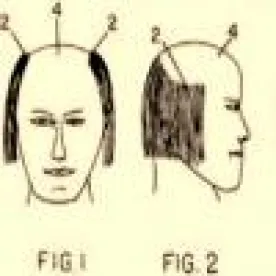HBO’s “Silicon Valley” has quickly become a must watch for all budding entrepreneurs, but the second season has opened up with a multitude of risks and roadblocks that could be faced by real world entrepreneurs. Here, we take a light look at the legal issues arising from the latest episodes.
The Plot
In Episodes 9 and 10 of this season of Silicon Valley, Hooli announced it was suing Pied Piper, claiming that Hooli was the owner of Pied Piper’s technology. Hooli alleged that Richard Hendricks, Pied Piper’s founder and CEO, developed Pied Piper’s technology while employed by Hooli making Hooli the rightful owner. Just the threat of the lawsuit was enough to scare away all of the VC firms that had previously been in a bidding war to fund Pied Piper, leaving Pied Piper scrambling for funding. But is there anything to Hooli’s threats? Could Hooli really snatch Pied Piper away from Richard?
The Law
Ron LaFlamme, Pied Piper’s suave and irreverent attorney, did a surprisingly good job of summarizing California law on the issue. Assuming Hooli’s employment agreement said that Richard agreed to assign to Hooli all “inventions” he conceived or reduced to practice while employed by Hooli (a common term of employment in the Valley), Richard may be in trouble. However, the legal risk would depend upon when, where and how Richard developed his compression technology. Under California law, an employer is not allowed to claim ownership of inventions that the employee develops entirely on his or her own time without using the employer’s equipment, supplies, facilities, or trade secret information. But there are two important exceptions to this rule. Even if the employee develops an invention entirely in his or her free time without using any of the employer’s equipment or confidential information, the employer may still lay claim to an invention if it either: (1) relates to the employer’s business or “anticipated research or development,” or (2) results from “any work performed by the employee for the employer.”
Is Pied Piper Going To Lose?
How does the law apply to Pied Piper’s situation? Let’s recap what Richard told his attorney:
-
he developed Pied Piper entirely on his own time,
-
with his own equipment,
-
without using Hooli’s trade secrets,
-
the Pied Piper technology didn’t relate to anything Hooli was doing at the time, and
-
Pied Piper did not result from any of Richard’s work for Hooli.
On these facts, Richard’s inventions are unconnected to his former employer, and under California law, Hooli doesn’t own Pied Piper’s compression technology. In an attempt to overcome this fatal weakness in its case, Hooli begins concocting the story that Big Head cofounded Pied Piper, so it can use Big Head to challenge Richard’s version of events.
All this had me thinking back to the first two episodes of Season 1, and the steps Richard should have taken then to protect his inventions from Hooli (and everyone else). Had he done so, in Season 2, Richard might have some good legal threats of his own to fire back at Hooli.
To be continued…I’ll finish this thought in my next post.



 />i
/>i

